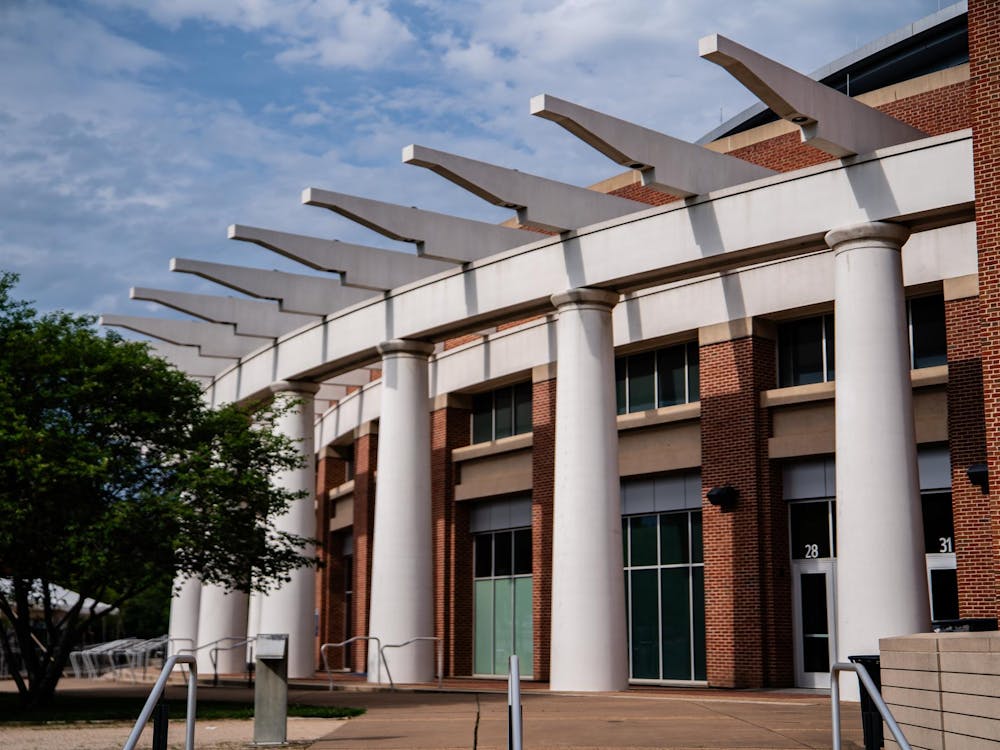It's a history that's been brushed aside for years, but now, in light of recent events that have brought its pernicious past to light, students are working to recognize the role of slaves in the University's history.
Between 1817 and 1865, the University was home to at least 150 slaves or more slaves, according to Catherine Neale's research as cited in Robert Brickhouse's article "Slaves at U.Va." from the July 2005 edition of Arts and Sciences Magazine. These slaves were hired by the University to cook and clean for students and help construct Jefferson's Academical Village. Although Jefferson did not permit students to bring or own slaves while on Grounds, 32 slaves were involved directly in building the Pavilions, University guide Chris Mullen explained. The University Guide Service discusses the University's history with slavery during tours, but many students, student leaders on Grounds said, overlook the central role slaves played during the University's early years. Students therefore have proposed that a new memorial be built to honor the University's slave history.
"Slaves helped in the construction of the University," said Ishraga Eltahir, former co-chair of the Student Council's Diversity Initiatives Committee. "The slave memorial would go a long way in understanding the University's history. Leaving out a vital piece [of this history] is not good. We need to embrace it. Acknowledging the fact is a big step."
Although a tablet honoring slaves already exists in front of the Rotunda, Carrie Filipetti, one of three co-chairs of the Diversity Initiatives Committee, said more needs to be done.
"The problem is that no one knows where it is. It's in the ground. People step on it. That's not good symbolism," Filipetti said.
The Diversity Initiatives Committee and University and Community Action for Racial Equality are leading the effort, but members of the two organizations still are soliciting the input from University and surrounding community members to form the proposal, which is scheduled to be ready for approval by the Board of Visitors in the fall, Filipetti said.
The timing of the memorial proposal is appropriate, organizers said, especially after the racial incident that occurred on the Corner last week and after Virginia Gov. Bob McDonnell declared April Confederate History Month, said former Student Council College representative Eugene Resnick.
"One of the goals of the slave memorial is to put the issues into the open," he said. "We need to be educated about slavery and its implications of a racial divide. Because we have a black president, many people assume that we are living in a post-racial society, but that is a huge illusion. Confederate History Month demonstrates the fact that the debate is alive and well."
Organizers are actively incorporating input from students and the community in the proposal and are holding a series of five focus groups in which attendees can offer their opinions, suggestions and ideas. The feedback from the focus groups, which are facilitated by graduate students as well as community members, will serve as an impetus for the proposal.
Some of the most popular memorial ideas brought up in the focus groups include a statue, commemorative garden and a 2-D mural, Filipetti said.
One of the goals of the effort is to prompt members of the community to learn, and "if it's done the way that students are proposing, it will represent something educational," said Frank Dukes, a University faculty member and director of UCARE, which is providing some of the resources for the proposal campaign.
Student support for the memorial is evident, Filipetti said, as 80 to 90 percent of students polled by the committee supported the idea for the new memorial. Some students, however, still overlook slavery's long and persisting effects on the University and society as a whole, she added.
"Some people say that slavery is irrelevant and is in the past," she said, adding that this memorial is an effort to commemorate the slaves who contributed to the University's history and hopes to help reconcile racial tension by getting members of the University community engaged emotionally and academically.
"We want a more inclusive University that accepts the past and looks to a better future," Filipetti said. "Our past is our present. If we are unable to acknowledge it, then we are unable to improve the future"






